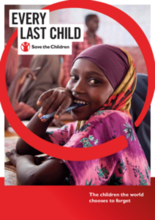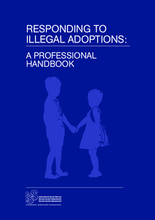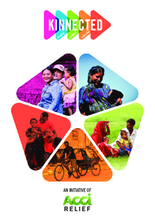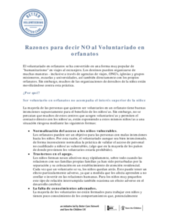Demographic Data
|
Sources: World Bank, UNICEF, UNDP HDR 2015, DHS 2011 |
Displaying 11021 - 11030 of 14390
Meant to highlight the maxim that every child deserves the best that we all have to give; this book provides a review of the progress made since The UN Convention on the Rights of the Child. It contains reports from 21 countries on the status of the rights of the child. The countries are: Australia, Canada, Croatia, Denmark, France, Germany, Greece, India, Iran, Japan, Portugal, Romania, Scotland, Serbia, Solomon Islands, Spain, the Netherlands, the UK, the USA, Uzbekistan and Venezuela. There are no reports from Africa.
This article examines the cultural differences Korean adoptees perceived when interacting with their birth families along with the impact of these perceived differences. The article points out that there has been little research on transnational adoptees, as most research focuses on domestic adoptees. The researchers interviewed 19 adoptees and examined their perceived differences. They found that differences had a wide variety of impacts on the participants’ sense of belonging.
This booklet is based on a recent internal desk review of Save the Children’s and partners’ work against physical and humiliating punishment of children, commissioned by Save the Children Sweden. It aims to present best practices, to show what methods have worked around the world, and to spread knowledge about results achieved and lessons learned when it comes to law reform and positive discipline.
'Early Childhood Matters' is an annual publication from the Bernard van Leer Foundation which aims to “spread awareness of promising solutions to support holistic child development and explore the elements needed to take those solutions to scale.”
This report tells the story of “forgotten children,” children who are relegated to the margins of society due to discrimination and subjected to the hardships of poverty. The report is aimed at identifying what is required to meet the needs of these children and to ensure their basic rights to survive and thrive, to learn, and to be protected.
The overall objective of this study was to deepen understanding on the experiences and support systems of grandparent-headed households with children of prisoners (CoP) in Uganda.
This report reviews South Africa’s National Integrated Early Childhood Development Policy, which was approved by the Cabinet in December 2015. The policy is aimed at providing a framework for multi-sectoral Early Childhood Development services in South Africa.
ISS has developed a handbook for professionals working in the adoption field that provides guidance on how to respond when illegal practices have been identified in an adoption case.
Kinnected is a program run in 10 countries by the organization ACCI Relief aimed at preserving and strengthening families and assisting children currently in residential care to achieve their right to be raised in a family. This report describes Kinnected’s programs and initiatives underway in Cambodia, Sri Lanka, and Lesotho and includes some individual case studies.
Este documento provee una explicación detallada de las razones que Better Volunteering Better Care está desalentando el voluntariado internacional en orfanatos (centros de atención residencial).







